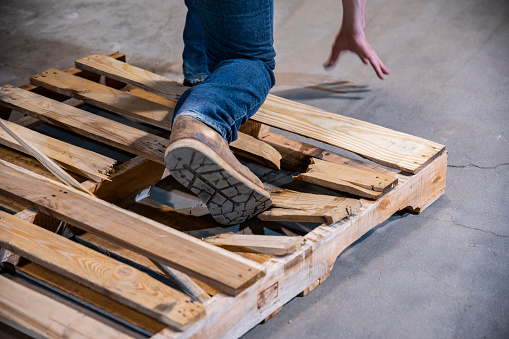How Safety Complacency Can Result in Workplace Accidents
Our workers’ comp lawyers explain how to keep workplaces safe
Companies need to put employee safety first at all times. Otherwise, workplace accidents can easily occur, resulting in a serious workplace injury. Each year, more than 2.7 million people sustain a work-related injury or illness, according to the latest statistics compiled by the U.S. Bureau of Labor Statistics (BLS).
When accidents happen at work, injured employees often need extensive medical treatment, time off from work, and support to help them fully recover. That’s why workers’ compensation benefits are so important.
But what if there were steps companies could take to prevent such injuries in the first place? According to a recent report, there is something companies can do to reduce workplace injuries and keep workers safe. The answer? Not becoming complacent about workplace safety.
“Complacency is a state of decreased external awareness and reduced sensitivity to hazards caused by the brain’s ability to activate neural pathways,” Sharon Lipinski, CEO of Habit Mastery Consulting, recently wrote in EHS Today.
What is safety complacency at work?
Complacency means becoming satisfied with the current state of events. The word also often implies a resistance to change. This might sound good if everything’s going great. But when it comes to workplace safety, employers need to be vigilant and constantly stay on top of the latest developments in workplace safety, according to Lipinski.
“Successfully combatting complacency starts by understanding that the root cause of complacency is how the brain handles repetitive behavior,” Lipinski writes. “In other words, complacency is a byproduct of habit.”
This means that when companies don’t make safety a priority, bad habits can result in hazardous work conditions. And the more hazards in a workplace, the more likely an accident will occur on the job.
How companies can make safety a priority
There are many different ways companies can make workplaces safer. In terms of complacency, Lipinski offered several suggestions for creating a workplace culture that puts workplace safety first. Such suggestions include:
- Create pre-planning checklists for workers. Before someone starts a job, make sure they know exactly what they need to do. Such checklists can range from which tools to use to what steps should be taken to perform their job safely.
- Anticipate what might go wrong. Think ahead. Use your experience. When injuries occurred in the past, what went wrong? Try to anticipate possible unexpected events
- Change workers’ perspective. Ask them to put themselves in someone else’s shoes at work. Encourage them to examine a problem from another point of view.
- Make safety a priority at work. This includes addressing the most dangerous conditions at work first.
Companies also need to provide workers with the necessary safety equipment and safety training to do their job right.
Give your workers’ comp case the attention it deserves
You might think you don’t need an attorney if you or a loved one got hurt at work. All you have to do is tell your employer you got hurt on the job. Then you’ll receive workers’ compensation benefits, right?
Don’t be so sure. Getting the benefits you deserve can be much more challenging than you might realize. And if you don’t receive those benefits, you could end up having to pay for your injury-related expenses out of your own pocket.
That’s not right. That’s why we want to help. At the Law Offices of Deborah G. Kohl, one of our experienced Rhode Island workers’ compensation lawyers can make sure your workplace injury gets the attention it deserves. We know what to do because we have years of experience helping injured workers throughout Rhode Island and Massachusetts.
Learn more about your legal rights. Contact our law firm and schedule a free case evaluation with a workers’ compensation attorney who puts your best interests first. We have three offices conveniently located in Rhode Island and Massachusetts and handle workers’ compensation claims in both states.


